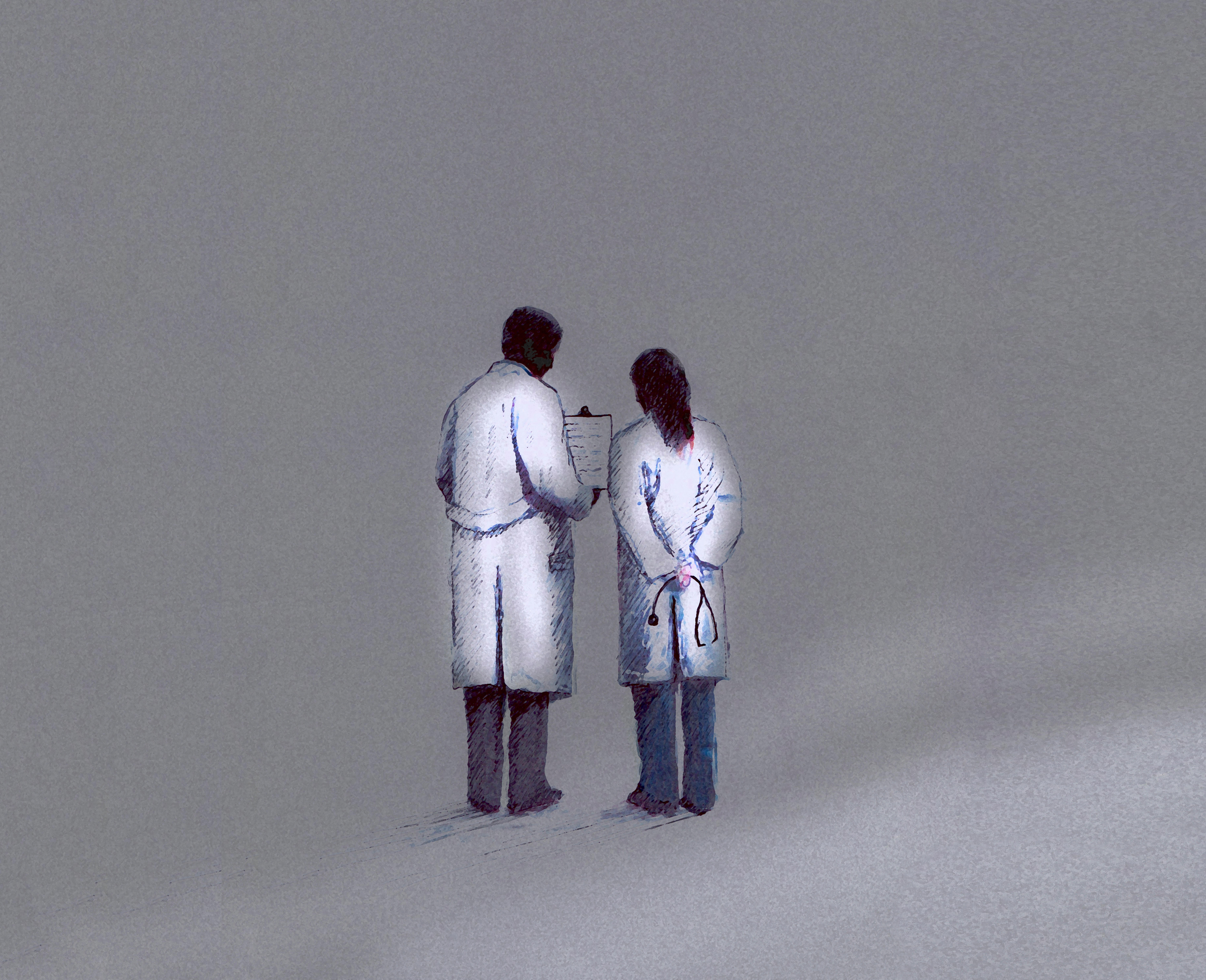Is your doctor a woman? She's probably being paid less.
Medicine has a gender problem


A free daily email with the biggest news stories of the day – and the best features from TheWeek.com
You are now subscribed
Your newsletter sign-up was successful
How much does a doctor earn? You might think the answer is obvious: "A lot." But physician compensation varies widely depending on specialty and where the doctor practices. And even when you adjust for all of those factors, there's a variable that dictates the answer to that question: gender.
That's not exactly news — according to the U.S. Department of Labor, women earn about 83 cents to every man's dollar. And in medicine, despite the fact that 47.8 percent of the people graduating with medical degrees in 2015 were women, a similar wage gap persists. The gender gap in medicine is so pervasive that it's gotten the attention of professional societies and academic journals. Just this month, Academic Medicine, the journal of the American Association of Academic Medical Colleges, published an entire special issue devoted to women in medicine, uncovering a host of disparities.
One of the starkest statistics in the mass of evidence contained within the journal sheds light on just how much more a man earns in the field of medicine than a woman. When researchers followed up with participants in a 1995 survey of full-time faculty in academic medicine 17 years later, they found that, annually, the men earned an average of $20,250 more than their female counterparts. The researchers re-surveyed 490 participants who had originally taken part, and even when they adjusted for things that could skew salaries — like location, specialty, and academic rank — a participant's gender still turned out to be associated with lower salary.
The Week
Escape your echo chamber. Get the facts behind the news, plus analysis from multiple perspectives.

Sign up for The Week's Free Newsletters
From our morning news briefing to a weekly Good News Newsletter, get the best of The Week delivered directly to your inbox.
From our morning news briefing to a weekly Good News Newsletter, get the best of The Week delivered directly to your inbox.
Among those participants who had worked part-time since 1995, the difference in compensation was about $15,000. Since more women than men fell into that cohort, the results suggest that women may be penalized for taking time off to care for children or elderly family members or for cutting working hours after they come back from maternity leave.
These inequities existed in the first survey, too, explains Dr. Karen M. Freund, the professor of medicine at Tufts School of Medicine who led the study. "If you plot the salaries from 1995 and then from 2013 [when the new study took place] on a graph, there are two parallel lines," explains Freund. "It really seems that women started in a lower place. You put this salary gap into place early on in their careers and women just never catch up."
The study did have its limitations: Since researchers weren't able to find every member of the initial survey group, they may have missed out on more equal numbers. And it's not clear just what "gender" might mean within the study — were participants blatantly discriminated against because of their sex or in less visible ways like, say, being given fewer publication opportunities, less appealing tasks, or less administrative support?
Though the 90 cents on the dollar women in academic medical positions earn compared with men is about seven percent better than that earned by the average female employee in other fields, it shouldn't be dismissed. Other data shows that even when women make progress in traditionally male-dominated fields like medicine, they lag behind men in leadership and managerial roles. In the sciences, authoring papers can be critical to obtaining more pay, but women who take time off for pregnancy and childbirth may never get the opportunity. And, as of 2014, only 16 percent of medical school deans were women — a number that indicates that even medical school itself can be an introduction to the field's foot-dragging when it comes to giving women equal opportunities, roles, and pay.
A free daily email with the biggest news stories of the day – and the best features from TheWeek.com
So what's to be done? The paper's authors call on medical schools to address the disparities by instituting annual reviews and training senior faculty in reducing implicit bias. Women can also take matters into their own hands, they note, by becoming better negotiators. Since the gap seems to persist throughout the years, the salary a woman starts on is even more important. However, that puts the burden for change on the shoulders of women when, with more transparency and awareness within institutions, the problem could disappear without women having to perform extra labor to get the pay they deserve.
Freund says patients aren't likely to see many signs of these gaps when they go in for a checkup or receive surgery. "These doctors are committed to taking the best care of people," she says. "But as a society, it's a reflection that this gender gap issue is pervasive — whether women are in blue-collar positions or high-level professional positions." Other data indicates that, despite gaps throughout the field, the compensation of female primary care positions is increasing more quickly than men. But it will take more than that to ensure that women doctors — no matter what their specialty — get their due. And, given that the professional satisfaction of physicians has been associated with happier patients, equally compensated doctors might just make better physicians.
Erin Blakemore is a journalist from Boulder, Colorado. Her work has appeared in The Washington Post, Time, Smithsonian.com, mental_floss, Popular Science and more.
